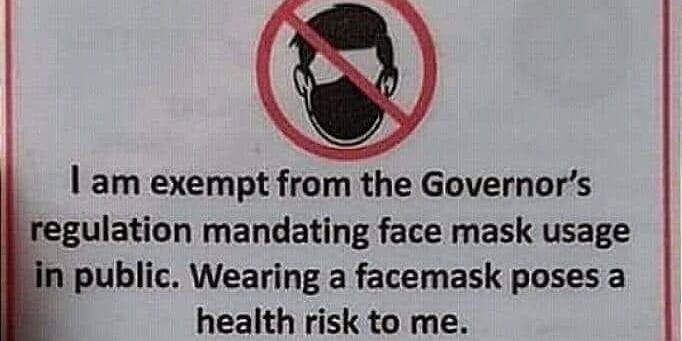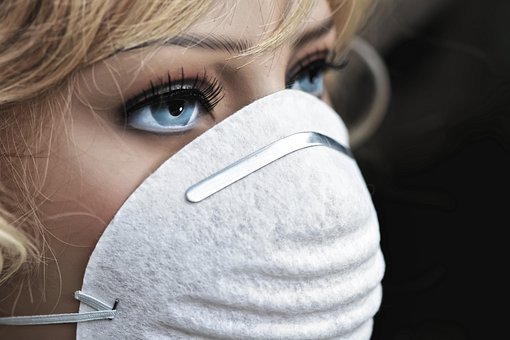Below is a review of the posts (on Facebook, LinkedIn, and Twitter) from the past week. You can check out the full posts by clicking on the links.

In the post on Sunday 5/24/20, we asked if you were worried about accidentally harassing a woman? Ordinarily you need not be worried. Here’s why. First, the legal standard for sexual harassment must be met. As described in the post, it’s normally hard to just stumble into it. Look at the statutory language and supreme court’s caselaw (in the post) and see what I mean. Next, how sexual harassment is portrayed may well differ from reality. Again, see the post for how this plays out. And then there is the cost of avoidance (as it is termed in the post), both to the employer and female employee(s).
TAKEAWAY: Treat female employees the same as male employees – professionally, with courtesy and respect – and there shouldn’t be a need to worry if you are harassing any of them.

The post on Monday 5/25/20, here, here and here, was a wish that on Memorial Day, we stop, reflect, and thank those who acted so that we have the freedoms we enjoy. And those freedoms are many, both within and outside of the workplace.
TAKEAWAY: Even though our freedom of movement has been affected by COVID-19, we still have many reasons to be thankful.

The post on Tuesday 5/26/20 brought us practical tips to minimize labor & employment risks arising from coronavirus concerns in the workplace and workforce. First, the risk of discrimination. Based on infection, testing, association, or anything else related to COVID. Also, if suffering from COVID is determined to be a disability, then so many more legal doors (and questions and minefields) open up. The various laws that might apply are noted in the post. OSHA has also published guidance that might be helpful; see the link in the post. If the workplace is unionized, other considerations are the provisions of the CBA and the WARN Act. DOL has issued guidance that might be relevant – see the post for that and more. There is also the risk of liability for adverse action against employees engaging in concerted activity. You know, those thigs that deal with the terms of their employment and are protected in every workplace by the NLRA. Some examples, and how COVID might come into it, are in the post.
TAKEAWAY: Have policies in place that cover these various risks – enforce the policies and consult an employment lawyer to make sure the policies themselves are legal.

The post on Wednesday 5/27/20 told us that an association orders a sign removed supporting a graduating high school senior. We asked is this is happening in your community and what would your Board do? Planned communities can have rules (or restrictions) on signs. And if they do, the rule/restriction should be enforced. Sometimes those rules/restrictions can be bent, other times not. See the post for how it played out here.
TAKEAWAY: Enforcement is a legal matter; owners and Board members should feel free to consult with a community association lawyer to know their rights and obligations.

In the post on Thursday 5/28/20 we saw that protesters hijack US disability law to try to avoid wearing masks. (We noted this is not safe and not the way the law works.) They are trying to do this by providing a sign that people can show. The sign is in the post. The sign is legally wrong. Why? First, not wearing a mask due to having a disability means that you must (a) actually have a disability and (b) the disability must prevent you from wearing a mask. For example, someone who is mobility-impaired is disabled, but not prevented from wearing a mask. Next, the sign asserts that the basis of disability need not be disclosed. See the post for why that is currently incorrect. The other part of this is accommodating disabled persons (and the penalties for failing to do so). Again, the person asserting protection must actually be disabled in a way that is affected by not entering the store if unmasked. There is also more on this in the post.
TAKEAWAY: Know the facts and law and keep both yourself and others safe.

The post on Friday 5/29/20 taught us that unemployment compensation benefits can be allowed to an employee using CBD oil. It is the facts that determine the outcome. So, what happened here? A healthcare worker legally used CBD oil to ease cancer symptoms. A random drug test was administered in March 2018. She told the person that she was taking OTC CBD for medical reasons. What happened after that is in the post. When she filed for UC benefits, she was found eligible and the employer then appealed to the court. The employer’s argument in support of ineligibility for UC benefits is in the post. How the court analyzed the argument, in light of the employer’s policy (which is also described in the post), is instructive.
TAKEAWAY: Make sure your policy says what you mean it to; a court will hold you to it. Have an employer lawyer review it to be sure.

Finally, in the post yesterday 5/30/20, we read about what you should know about COVID-19 and the ADA, Rehabilitation Act, and other EEO laws. So, by now you are pretty comfortable with how COVID-19 affects you and your business and what you can and cannot do to employees with the work slowdown/stoppage, right? Good. Now it’s time to think about the economy reopening and how that affects you and your employees. The normal employment laws still apply, but sometimes with twists and turns. Now, under the ADA, employers can delve more into medical status. See the post for what that means. They can also take temperatures on the basis noted in the post. Whether employs can require symptomatic employees to stay home and what they need to return to work is also covered in the post. All of this entails a certain level of private medical information, so confidentiality is also covered in the post. Likewise, and in logical order, the post also goes into hiring and onboarding, reasonable accommodation, harassment due to protected characteristics (especially national origin), and furloughs and layoffs. There are a lot of good tips in the post for both employees and employers.
TAKEAWAY: As always, but now with the added gloss of COVID-19, know your rights and obligations. Get legal assistance to protect you.

 York, Pennsylvania 17403
York, Pennsylvania 17403